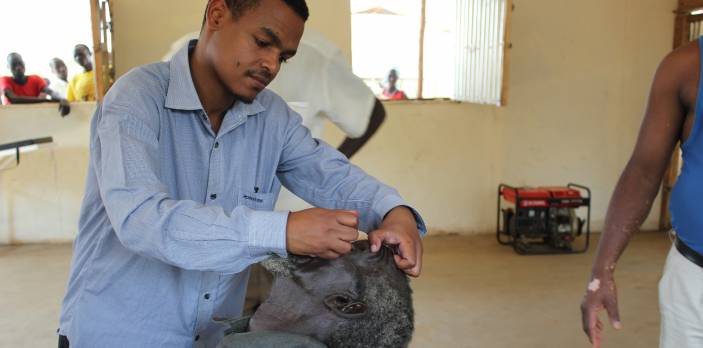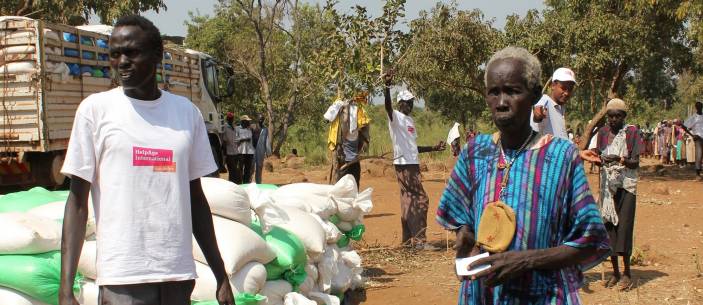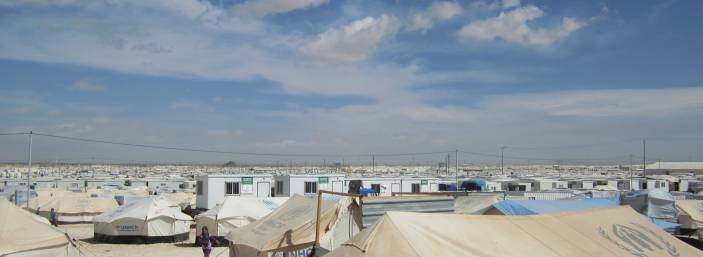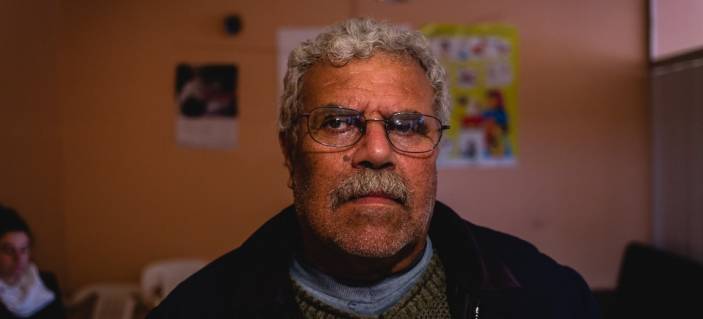Today marks World Humanitarian Day – a time to recognise the selfless dedication and spirit of aid workers across the world who put their own lives at risk to help others in need.
Held since 2009, the day was inaugurated in memory of the former Special Representative of the UN Secretary General to Iraq, Sérgio Vieira de Mello, and 21 members of his team who were killed in the Canal Hotel Bombing on 19 August 2003.
World Humanitarian Day 2015’s theme is “inspiring the world’s humanity”, and the UN is encouraging people to share the stories of humanitarian workers and in turn “share humanity”. We are joining this movement by sharing stories of our work to support older people affected by two humanitarian crises.
South Sudan
When South Sudan split from its northern neighbour in 2011, it was supposed to be a new beginning for a population ravaged by years of conflict. Yet four years later the country is embroiled in its own civil war as political tensions spill over into ethnic violence.
Over 1.1 million people have been left internally displaced by the conflict and some 430,000 have fled the country to refugee camps in neighbouring states.
Through our partners and our in country teams, we are supporting older people affected both within the country and those displaced on the other side of the Ethiopian border in the country’s Gambella region.

We have distributed essential items such as blankets, set up monitoring groups in camps to keep an eye on older people and ensure they can access services, age-proofed latrines with handrails, and set up an age-appropriate social centre.
“The centre was built for future distributions and trainings for older people’s groups and home-based carers,” said Erna Mentesnot Hintz, HelpAge Communications Officer in Ethiopia.
“Most importantly though, it was built to give older people a place to pass on their knowledge as well as teach younger refugees about their culture.
“HelpAge’s project team has built great relationships with the local refugee community in Gambella. It is our team’s immense commitment in such a harsh environment that is making an invaluable difference to the lives of thousands of South Sudanese refugees.”

Nyadeng, 80, is one of the older people we have helped. She lives in a camp in the Gambella region of Ethiopia, where she fled following an outbreak of violence in December 2013. She walked for four days to get there, but now feels safe from the conflict with her daughter and three granddaughters. HelpAge, working with the United Nations High Commissioner for Refugees, give Nyadeng and her family 15kg of maize a month and bedding to sleep on.
Syria
Over four years in Syria, more than 200,000 people have been killed during a conflict that began as protests against the Assad regime and escalated into a full-scale civil war.
Some four million people have fled the violence into neighbouring countries, and a further 7.6 million are displaced within Syria. Older people account for around one in 20 of these refugees.
HelpAge, in partnership with Handicap International and AMEL, have been working to help vulnerable older refugees in Lebanon and Jordan.

In particular, we have been focusing on healthcare and ensuring older people get the ongoing treatment they need for chronic, non-communicable diseases (NCDs).
We have provided drugs such as insulin and equipment to measure blood pressure and blood sugar, as well as training staff to spread information about how to fast safely during Ramadan when they have a NCD. Through this work, we are reaching around 500 people each month.
Emanuela Rizzo, Regional Programme Manager at HelpAge, explained that in Lebanon in particular the “fragmented and uncoordinated healthcare system” has not been able to fully cope with the needs of those coming into the country.
“The healthcare system is highly privatised, which raises huge problems for refugees, and particularly older refugees with chronic health conditions, such as diabetes or hypertension,” she said.
HelpAge has responded by providing free healthcare to both Syrian refugees who cannot otherwise afford it and older Lebanese people affected by the population influx.
The crisis has caused prices to rise and wages to fall in Lebanon, and this has made life harder for 62-year-old Lebanese man Afif al Hanoun. “My health problems make the situation worse,” he said. “I suffer from diabetes, hypertension and heart disease, but I am still working as a tailor six days a week. I need to work because I am the only one earning income in the family.”

We have helped Afif by providing him with medication and regular health checks for his chronic conditions.
Catering for older people in emergencies as populations age
The number of older people globally is set to double by 2050, and this has serious implications for humanitarian responses.
Older people are more vulnerable during crises. Accessibility can prevent them from escaping danger or accessing food supplies, while underlying medical conditions, such as hypertension or diabetes, can be fatal if treatment is interrupted. This is compounded by the fact that older people are often among the poorest members of society, which can impact access to basic goods and services and put them at further risk.
As populations age, we know there will be more older people affected by humanitarian crises. The humanitarian sector must, therefore, strengthen its capacity to prepare, assess and respond to older people’s needs, and this is a key outcome we want from the World Humanitarian Summit in Istanbul next May.
Find out more about how we work with older people in emergencies and get involved with World Humanitarian Day by letting your Twitter feed #ShareHumanity.
